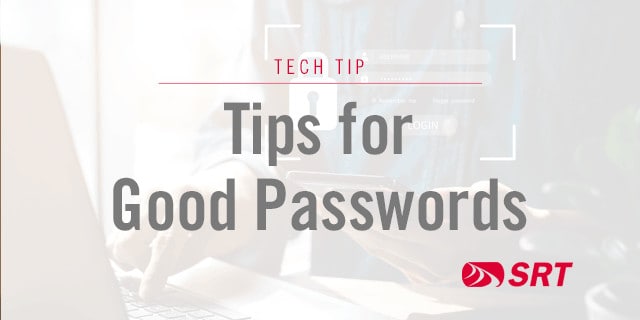
Protecting your personal information and data is very important, and one of the most basic ways to do that is through strong passwords. Here are a few tips about password setting, management, and things to consider.
1. As tempting as it may be, try to not use the same password for multiple things. Varying passwords will limit the risk of someone accessing multiple accounts if they gain access to one.
2. Passwords and passphrases are different, and passphrases are better. Passwords are typically a combination of a single word with additional characters such as numbers and symbols. Passphrases are a series of multiple words with numbers and symbols. These words should be seemingly random to each other but have meaning and are easy to remember for you. For example, c0ffee54321 is an example of a simple password, but lovecoffeeeveryday19285 takes the word and makes a more complex phrase with a random number sequence which is much harder to crack.
3. Change your passwords often. While this may seem tedious, it will reduce the risk of your information being compromised.
4. Use a password manager. There are many apps and services that provide password management. Do some searching online before deciding which one is best.
5. Avoid names and important dates. Bad actors will often use social media to gain access to information such as important family member names or birthdays which are commonly used in passwords.
6. Longer is better. Typically, industry experts suggest 12 characters at minimum, but more is always better. This is where passphrases can help with reaching the character count.


